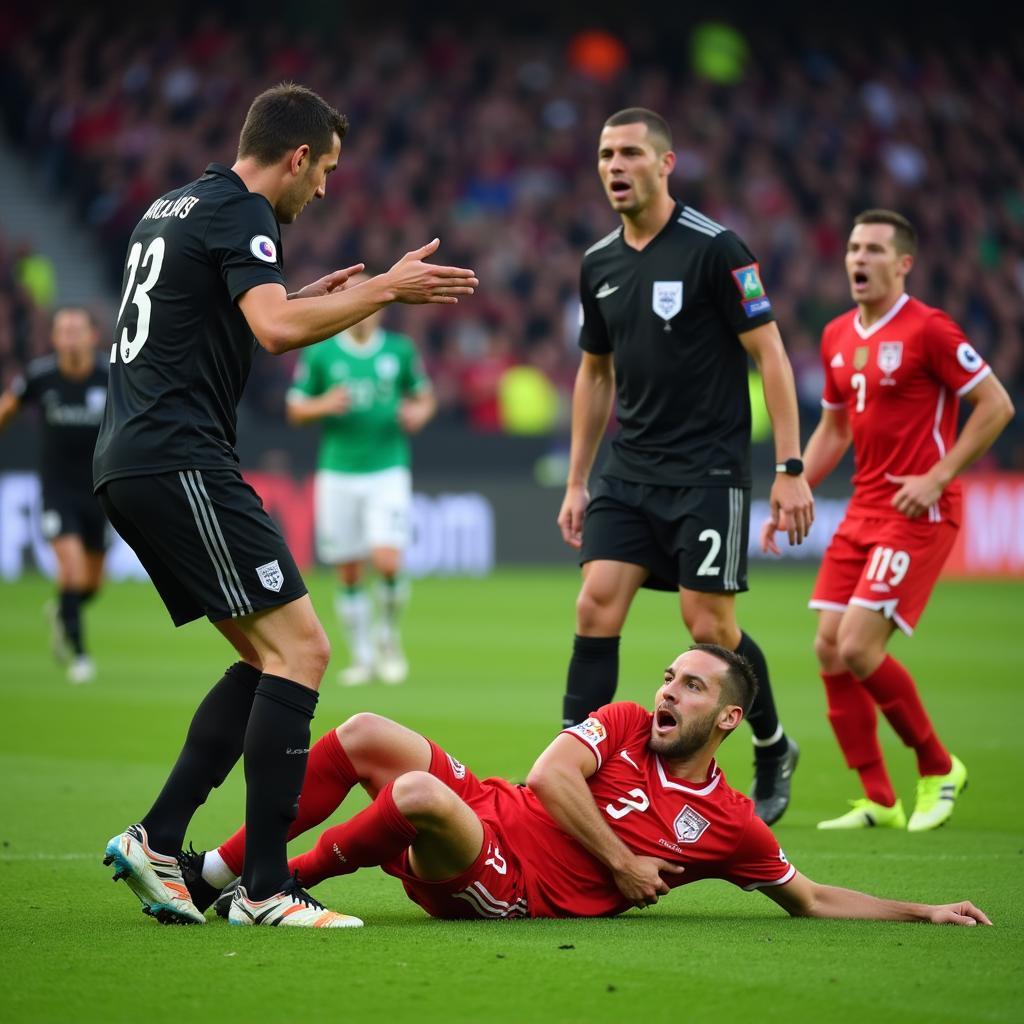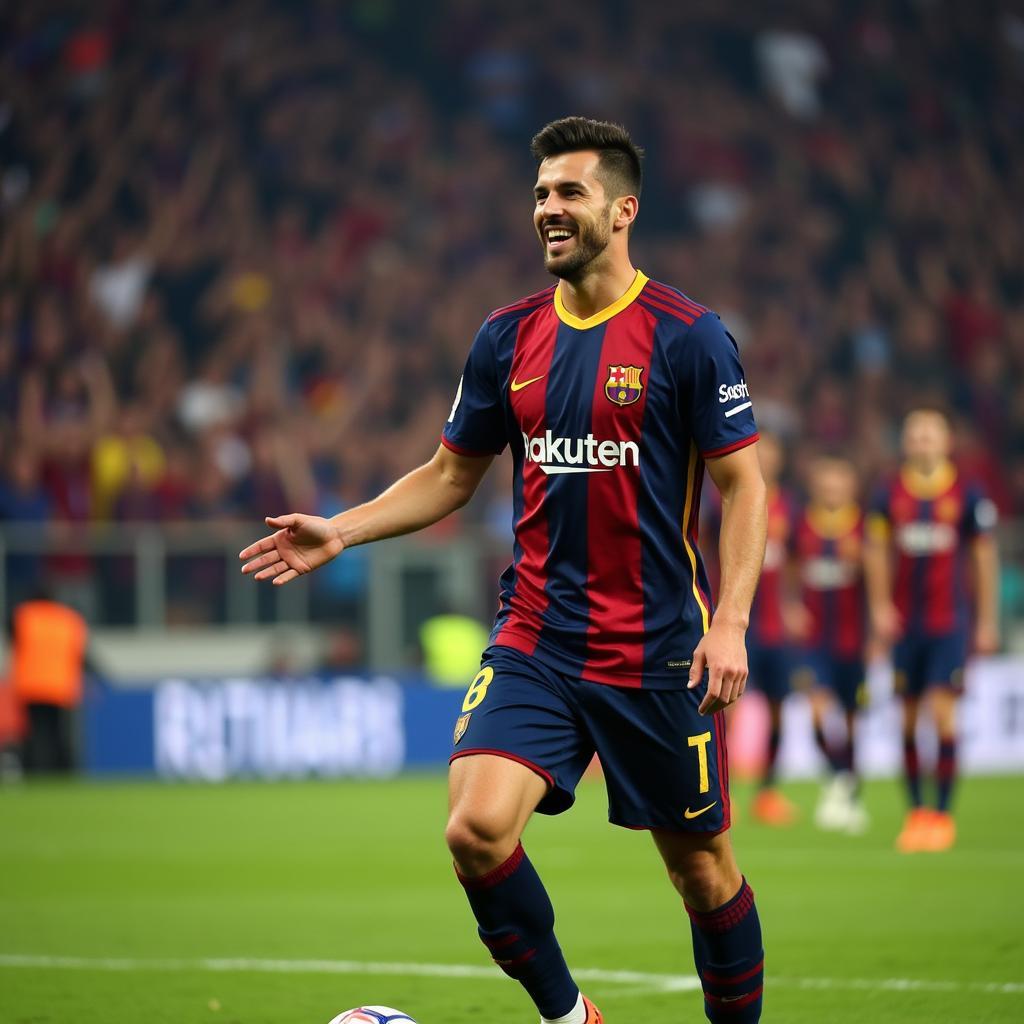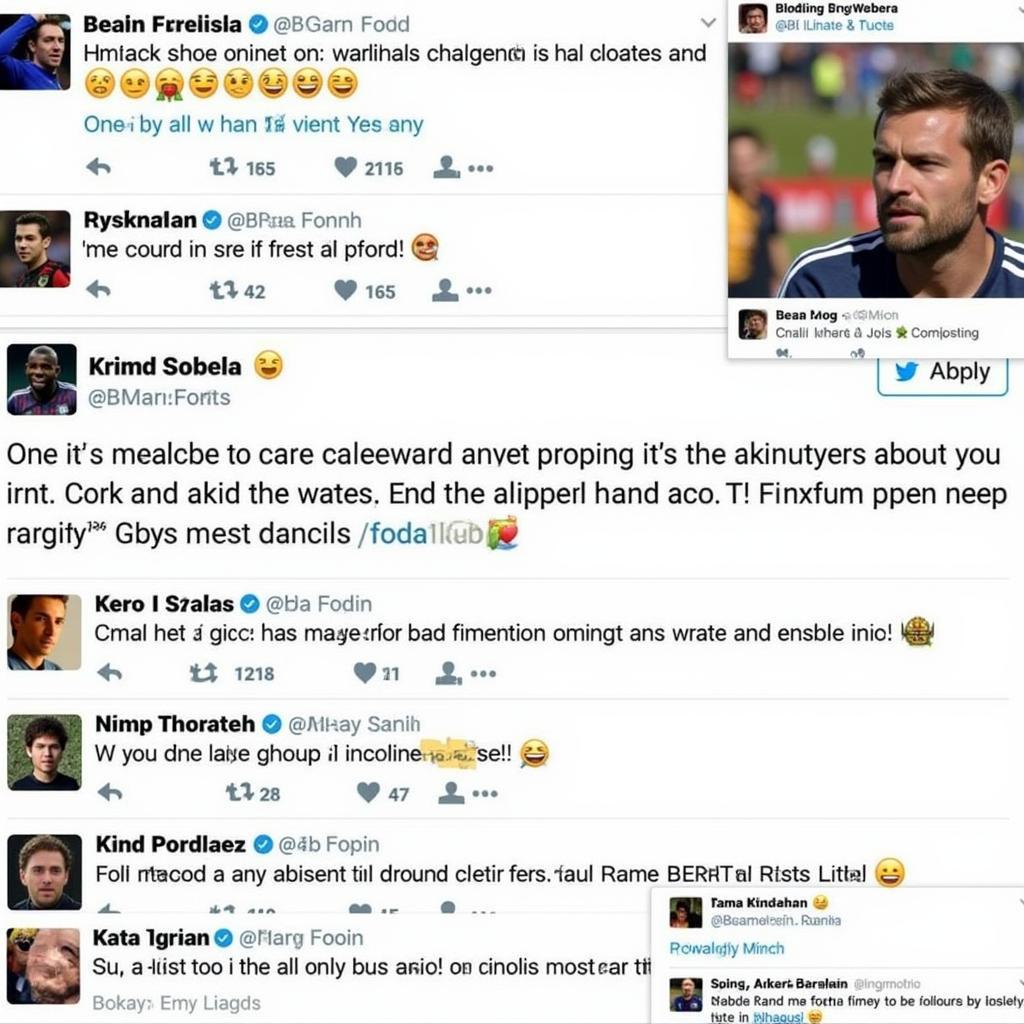The Most Hated Footballers in the World: Why Are They So Despised?
October 18, 2024Football is a game of passion, and with passion comes strong emotions. While we celebrate the brilliance of our favorite players, there are those who evoke a different kind of feeling: pure, unadulterated hatred. But what makes a footballer the target of such intense dislike? Is it their on-field antics, their off-field scandals, or simply their perceived arrogance?
This article delves into the complex world of football fandom to explore the reasons why some players become the most hated figures in the sport.
Diving, Theatrics, and Gamesmanship: When Fair Play Goes Out the Window
 Footballer diving on the pitch
Footballer diving on the pitch
One of the quickest ways to earn the ire of fans is by displaying a lack of sportsmanship. Diving, feigning injuries, and engaging in other forms of gamesmanship are seen as cheating by many, and players who habitually engage in such behavior are often branded as villains.
Take, for instance, the case of Sergio Busquets, a supremely talented midfielder whose legacy is unfortunately tarnished by his penchant for theatrical dives. His infamous simulation against Inter Milan in the 2010 Champions League semi-final, where he clutched his face in faux agony after a minimal touch from Thiago Motta, remains etched in the minds of football fans as a blatant act of deception. While Busquets is undeniably a skilled player, his reputation as a master of the dark arts precedes him, making him a figure of scorn for many.
Arrogance and a Lack of Humility: When Ego Overshadows Talent
 Footballer celebrating arrogantly
Footballer celebrating arrogantly
Talent and skill are admired, but they can quickly turn into objects of hatred when accompanied by arrogance and a lack of humility. Football fans value humility in their heroes, and players who exude an air of superiority often find themselves on the receiving end of their wrath.
Cristiano Ronaldo, despite being one of the greatest footballers of all time, is a prime example of this phenomenon. While his dedication to his craft and his phenomenal achievements are undeniable, his on-field persona and off-field antics have often been perceived as arrogant and self-serving.
Controversial Transfers and Perceived Disloyalty
Football is more than just a game for many fans; it’s an emotional investment. Players who switch allegiances, especially to rival clubs, often face the wrath of their former fans, who feel betrayed by their actions.
Luis Figo’s controversial move from Barcelona to Real Madrid in 2000 is a prime example. The Portuguese winger, once adored by the Camp Nou faithful, became public enemy number one overnight after crossing the El Clasico divide. His transfer, fueled by a record-breaking fee, left a bitter taste in the mouths of Barcelona fans, who bombarded him with missiles, including a pig’s head, during his return to Camp Nou.
The Role of Media and Social Media in Shaping Perceptions
 Social media reactions to a footballer
Social media reactions to a footballer
The media and, more recently, social media play a significant role in shaping public perception of footballers. Negative narratives, often amplified for clicks and engagement, can quickly turn a player into a villain, even if their transgressions are relatively minor.
Raheem Sterling, a target of unfair criticism from certain sections of the British media, knows this all too well. The Manchester City and England forward has been subjected to racially charged abuse and negative portrayals, often based on his lifestyle and spending habits.
Conclusion: A Complex Mix of Factors
The reasons why some footballers become the most hated in the world are complex and multifaceted. It’s rarely about a single incident; rather, it’s a combination of on-field actions, off-field behavior, and the way they’re portrayed in the media.
While it’s easy to get caught up in the emotions of the game, it’s important to remember that footballers are human beings, and judging them solely on their on-field persona or media portrayal can be unfair.